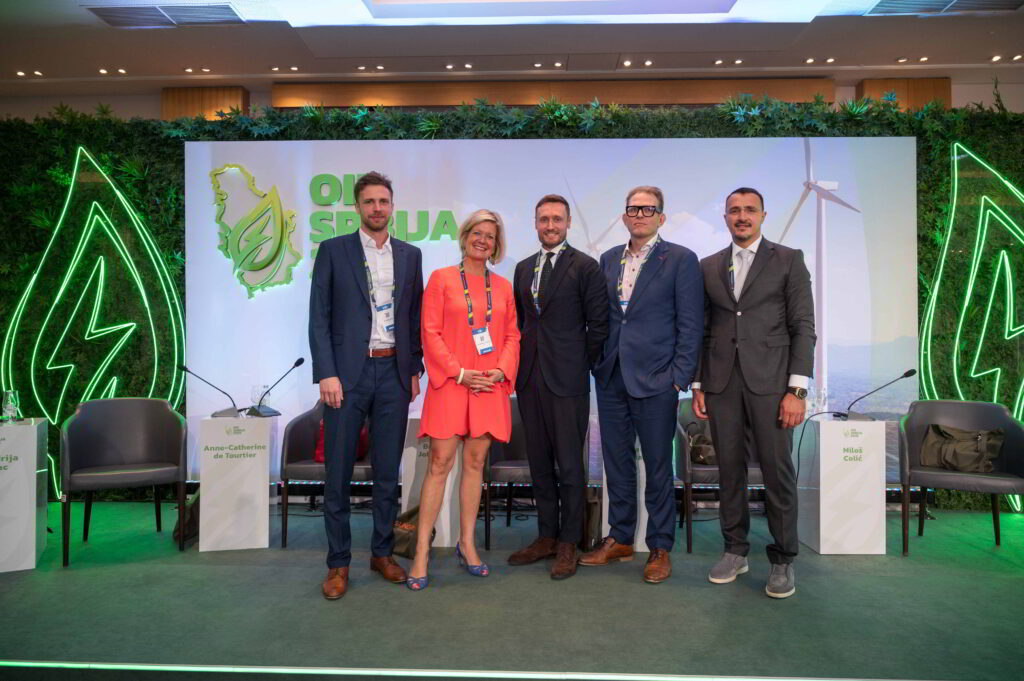Serbia is facing a slowdown when it comes to RES projects, and it is important for investors and equipment manufacturers to diversify their portfolio in order to respond to numerous global and local challenges, is the message of the participants of the second panel discussion held at the RES SERBIA 2025 conference in Vrdnik.
The participants of the panel, which brought together wind power investors and wind turbine manufacturers, discussed the challenges facing the wind industry in Serbia and the world, obstacles that slow down the development of RES projects, corporate PPA contracts that should be developed in Serbia and the region.
Among the participants of the panel “On Whose Side Does the Wind Blow – Serbia and the World” were Anne-Catherine de Tourtier, Vice President of Nordex for the Mediterranean region, Bruce Johnson, Director of Corporate Finance and Treasury of Masdar, Kai Rintala, Managing Director of Taaleri Energia and Miloš Colić, CEO of New Energy Solutions. The discussion was moderated by Dr. Andrija Buljac, Wind Specialist at Fractal.
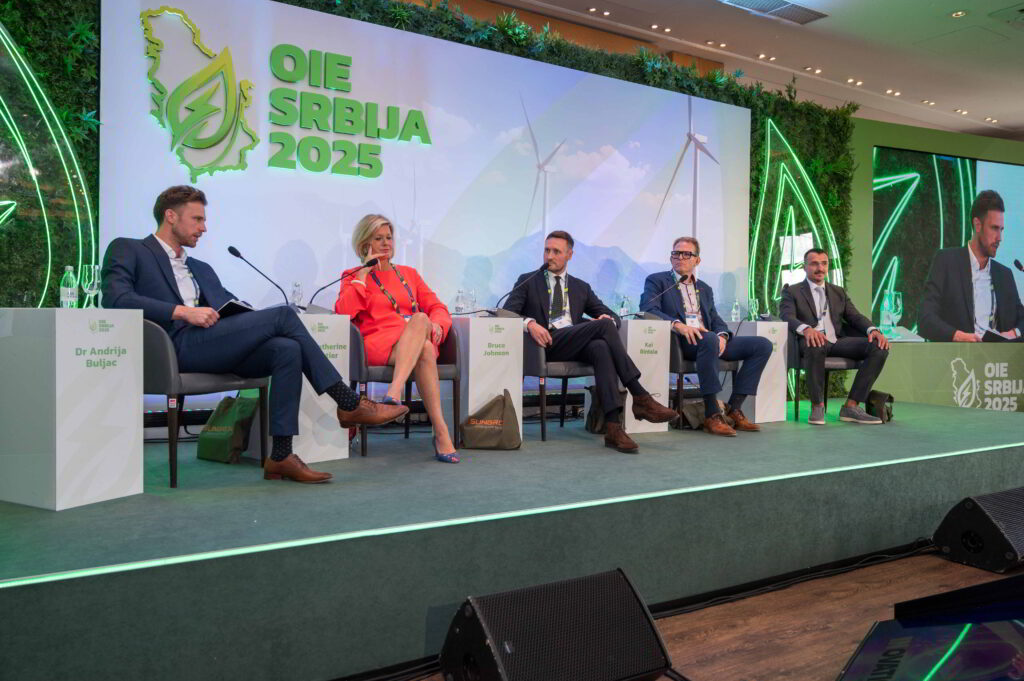
We should not rely only on auctions
Kai Rintala, Managing Director of Taaleri Energia, praised the implementation of auctions for market premiums in Serbia, but also emphasized that we should not rely only on state auctions if we want to implement the energy transition, because they alone cannot satisfy the volume of projects that need to be built.
He reminded that in the north the electricity market is liberalized, and that everyone concludes commercial contracts with other market partners.
– Although third auctions await us in Serbia, the focus should be on making the market work in such a way that industrial consumers in the country can reach renewable energy producers. Then, when the state is removed from the equation, the energy transition of Serbia will improve a lot and electricity will be cheaper – Rintala points out.
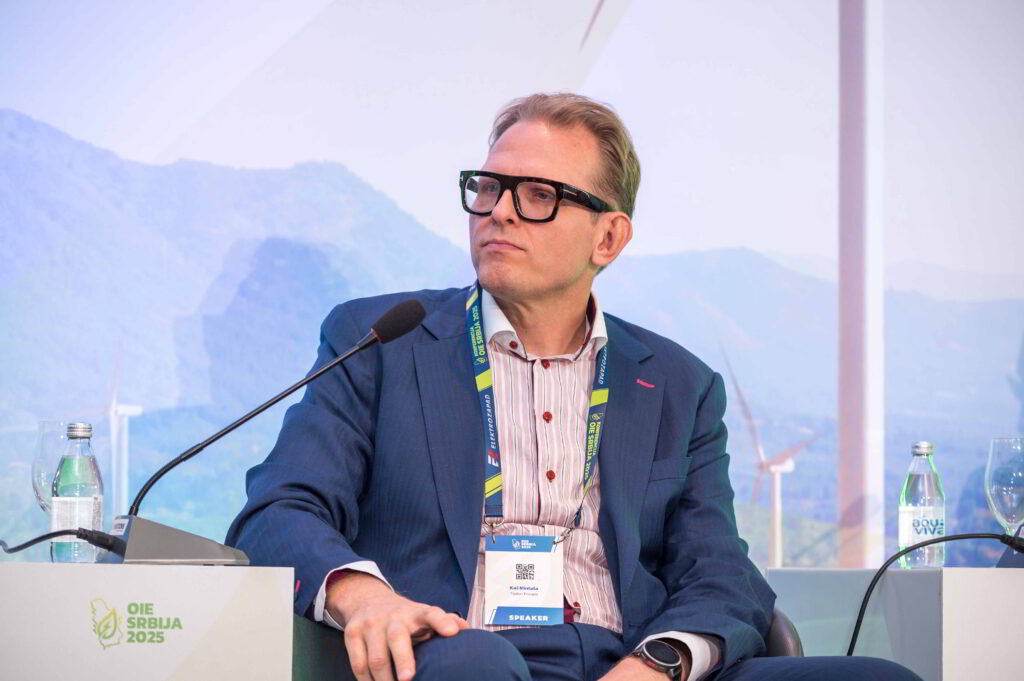
Kai Rintala, Managing Director Taaleri Energia
He noted that of the 13 countries where the company is present, the fastest permit process is in Texas.
– The district judge sends you a letter there and says that you don’t need any permission, but in general, it’s simply nowhere. In Norway, we had the biggest political risk, retroactive taxes appeared and destroyed the investment, that’s why we diversified our portfolio in 13 countries. The solution is to continue working with the authorities, associations, in order to solve all the problems – notes Rintala.
Customers want stable and cheap energy
Masdar’s Director of Corporate Finance and Treasury, Bruce Johnson, who led the financing of the Čibuk wind park, announced that the first turbine of the Čibuk 2 wind park should start operating in early October.
He noted that there is more capacity in preparation in Serbia than the state’s goal – 3.5 GW by 2030.
– We have a fantastic relationship with the Government. It would be nice, but not necessary, if there was harmonization of regulations with the EU. That consistency would make the availability of investments in Serbia more direct – noted Johnson, adding that Masdar is also present in Montenegro, as an investor in the Krnovo wind park.
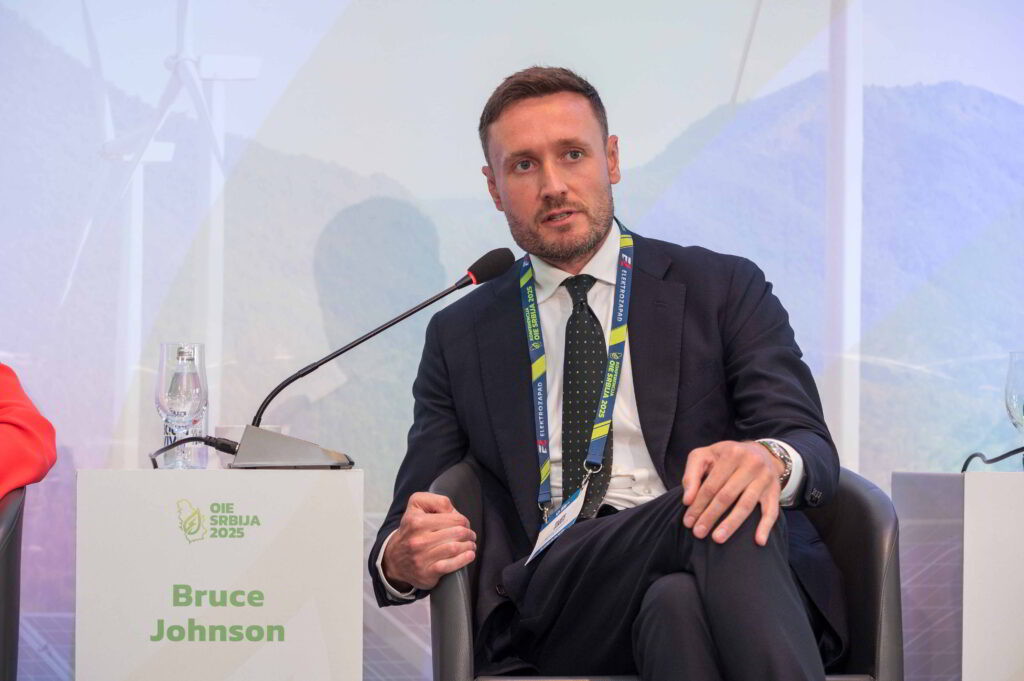
Bruce Johnson, Corporate Finance and Treasury Director Masdar
He also pointed to adaptability as very important in project planning.
– There is a saying that you can’t control the wind, but you can adjust the sails – said Johnson.
Masdar’s Director of Corporate Finance and Treasury also referred to negative comments from US officials about wind parks. As he pointed out, the company continues to record growth in the US region.
– Everyone who uses electricity wants cheap, stable energy. The energy needs of companies are enormous. Google and Amazon are building data centers. We continue to see growth in the US region, despite the headlines that the US is no longer in favor of renewable energy sources – he pointed out.
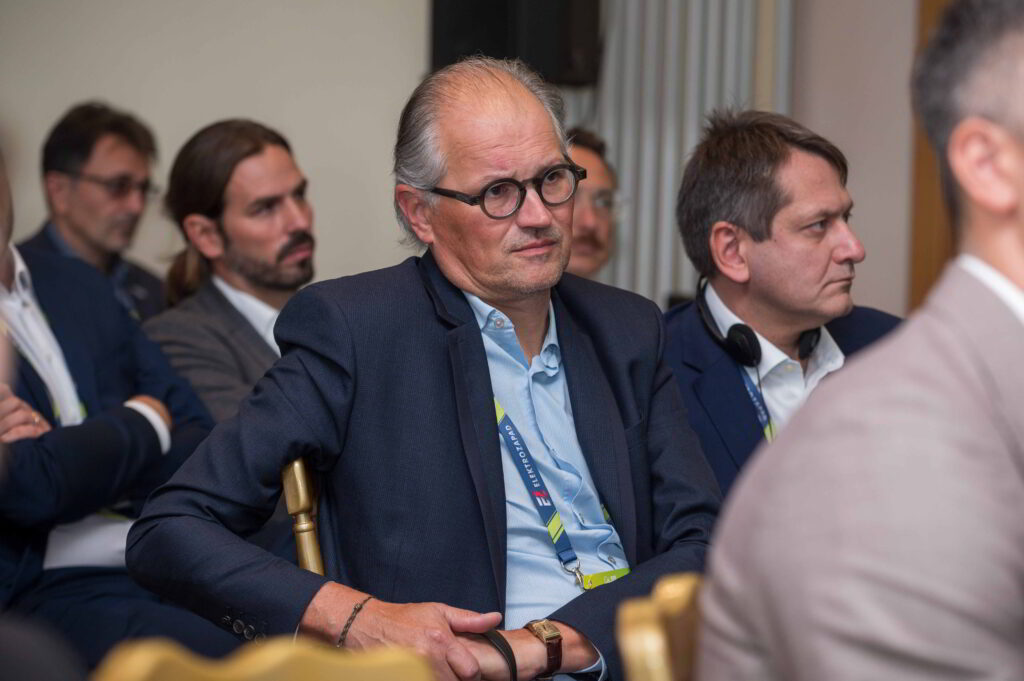
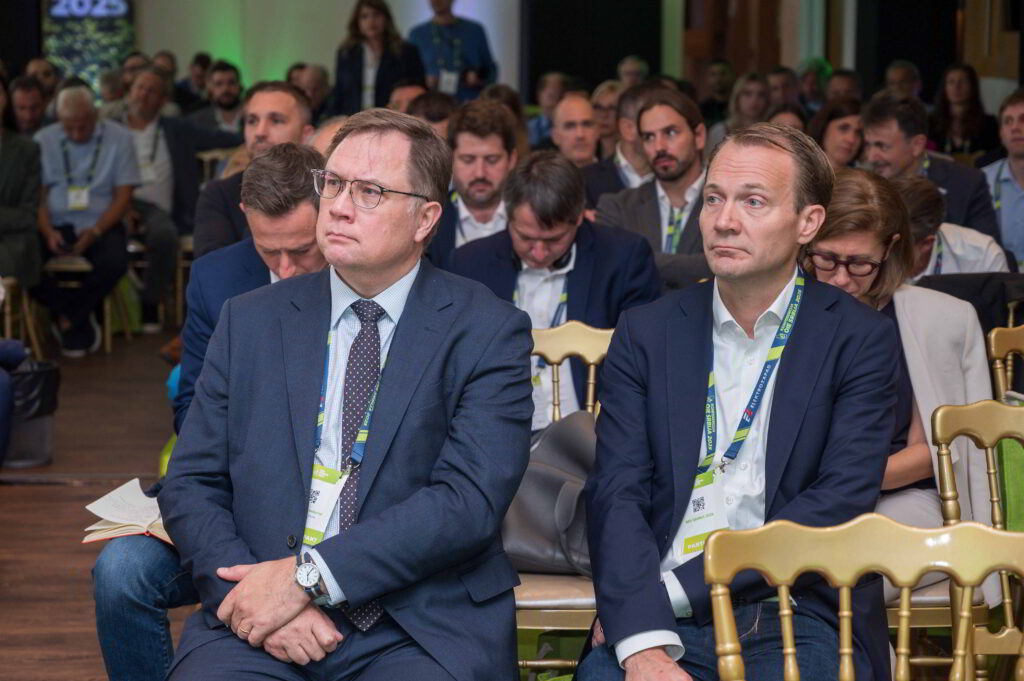
The potential of the Serbian and Balkan markets
Anne-Catherine de Tourtier, Vice President of Nordex for the Mediterranean region, said that the Balkan market is very important for Nordex, a wind turbine manufacturer that has installed more than 57 GW worldwide in 40 years.
– It is a great honor for me to be here, at a very professionally organized event, and every year I am impressed by the quality of this conference – said Anne-Catherine de Tourtier, continuing – On the Balkan market, we started from Croatia, we are the market leader there, then we arrived in Serbia, soon we will also arrive in Montenegro, and probably in 2026 we will equip the first wind park in Bosnia and Herzegovina.
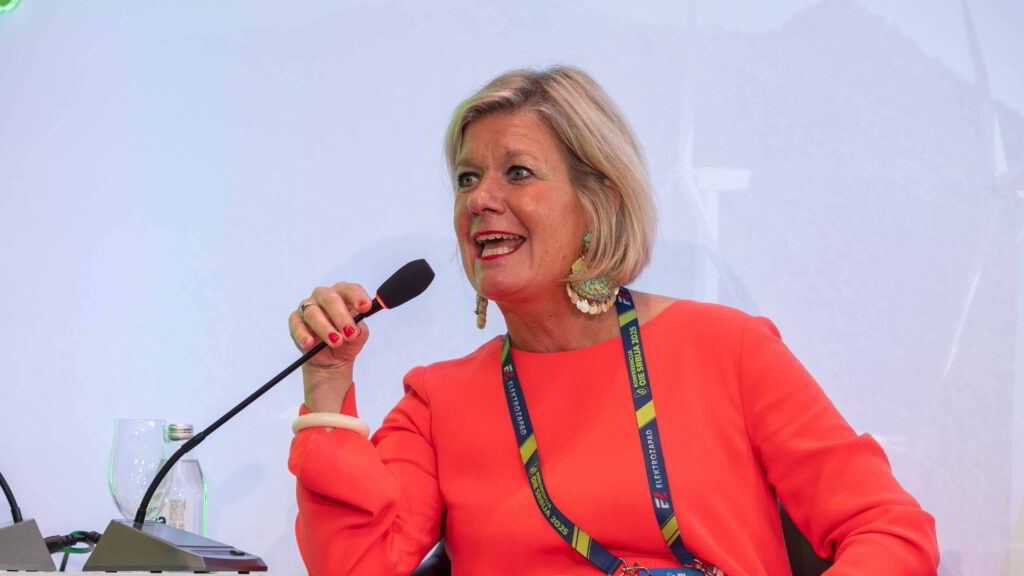
Anne-Catherine de Tourtier, Vice President of Nordex for the Mediterranean region
According to her, Serbia is facing a slowdown, like many other countries, but, as she adds, there are obstacles that could be overcome.
– Europe still has a solid regulatory framework. It is important that Serbia gets closer to the EU and creates stability for investors. When the time between obtaining a construction permit and the realization of the project is too long, it creates instability. In Serbia, it is important that we have that stability. We are here to stay, we believe in the Serbian market and the potential of the Balkan countries – she stressed.
She said that Nordex, as a European supplier of turbines, is more competitive than non-European ones.
– We develop agile turbines that can adapt to special conditions. In Banat, we are present on two projects, Čibuk 2 and Pupin, and we managed to optimize in different ways both projects with the same turbines. We can compete in an increasingly competitive environment in Serbia and the rest of the world – she concluded.
The development of wind power plants is a very complex process
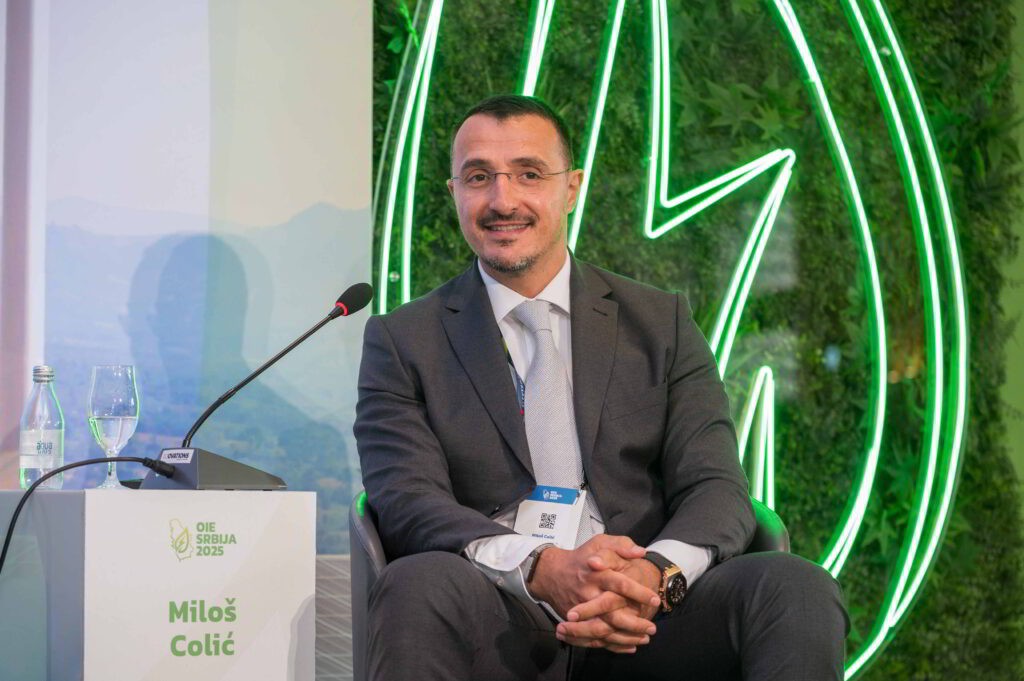
Miloš Colić, CEO of New Energy Solutions
Miloš Colić, New Energy Solutions’ CEO, assessed that the development of wind power plants is a very complex process.
– Our company is involved in more than 80% of all wind parks that are currently under development in Serbia. We are talking about a very complex infrastructure and we have investors who understand that, but some do not recognize how complex these projects are, so we have a big gap between reality and the planned – stressed Colić.


